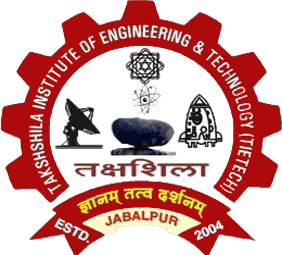The Department Administrative Coordinator is Prof. Deepa Golani who has a huge experience in the area of Electrical Engineering. This new degree program has been developed to train students in the field of energy technology. The Energy Technical Specialist Associate in Applied Science degree will convey the skills and knowledge necessary to be successful in both the traditional and renewable energy fields. Here you will learn to handle tasks across the fields of electricity, heating, water and sanitation with a view to installing energy efficient solutions and optimizing structural installations and process facilities such as indoor climate systems, heat pumps and similar installations in buildings as well as industrial plants.
Course Overview
This course aims providing an introduction and overview of the broad field of energy technology. Course deals with the effects of power generation and energy utilization on ecology and climate, the effect of burning fossil fuels, waste materials, the ecological impact of emissions, transport of pollutants in air and environmental management and economics. A condensed cross-section of essential engineering concepts/principles from the domain of thermodynamics and heat transfer is provided, including a review of the concepts of energy and power, energy conversion, energy efficiency and basic thermodynamic cycles. An overview of global energy resources is also given, leading to a historic review of human energy use and power generation. Society’s energy demands and the pertinent energy that follows are analyzed from the perspective of different sectors, including industry, households, and agriculture, as well as the commercial and public sectors in Palestine. This course gives an overview of the use of solar (thermal and photovoltaic), hydroelectric, wind, geothermal, ocean thermal, wave, tidal and geothermal energy, as well as energy from biomass. Broad-based curriculum enables students to seek employment in different sectors of the energy industries.
Takshshila Institute of Engineering and Technology established a M.Tech Course in the area of Energy Technology in the year 2011 with the prime objective to focus on Green Energy Technologies.
Meeting the increasing demand for energy poses many challenges: increasing efficiency, developing new supplies and safeguarding the environment. Technology will play a critical role in meeting these challenges.
 Course Snapshot
Course Snapshot
| Intake | 18 Seats. | |
| Course Duration | 2 Years | |
| Eligibility Criteria | Admission to Post Graduate Programme in M.E/M.Tech are made through the B.E./B.Tech/MCA with 60 % in relevant field. | |
| Mode of Selecttion | Through counseling conducted by Directorate of Technical Education (DTE), Bhopal on the basis of Gate/Non Gate. |
Course Objectives
- • Students master the fundamental principles of the various alternate energy schemes and where they can be applied.
- • The student should be able to calculate performance measures and figures of merit for the various energy technologies to solve energy demand problems.
- • The ability to distinguish between engineering performance and economic efficiency and develop cost efficient solutions to energy problems.
- • The student fully understands the constraints on the various alternate energy methods when compared to conventional sources.
Course Content
The Energy Technology Program introduces students to the full suite of energy systems and technologies—traditional and renewable—and prepares them for careers in the rapidly expanding energy industry. It provides an introduction to energy systems and renewable energy resources, with a scientific examination of the energy field and an emphasis on alternate energy sources and their technology and application. The class will explore society’s present needs and future energy demands, examine conventional energy sources and systems, including fossil fuels and nuclear energy, and then focus on alternate, renewable energy sources such as solar, biomass (conversions), wind power, geothermal, and hydro. Energy conservation methods will be emphasized.
The focus areas for the course are:
- • Affordable Renewable Energy Technologies
- • State-of-the-Art Clean Coal Technologies
- • Climate Change
- • Bio Fuels & Bio Diesel
- • Bio Science in Waste Management
- • Solar PV and Thermal
- • Geothermal
- • Wind
- • Fuel cells
Facilities
The Department of Electrical and Electronics Engineering has Energy laboratory and design experience in the areas of Heat pumps, Insulation, Solar thermal, Photovoltaic, Wind turbines, Fuel cells, and Thermoelectric, as well as theory based courses focusing on energy creation, transfer, and storage.
- Basic Electrical Engineering Lab
- Instrumentation Lab
- Electrical Workshop
- Network Lab
- Power System Lab
- Electrical Machines Lab
- Power Electronics and Drives Lab
- Control system Lab
- MATLAB
In addition to the above labs the department has the following Facilities:
- Each Faculty member and each lab is provided with a PC having internet facility.
- Simulation Lab with a number of PCs of Latest configurations.
- Computational Hardware/Software Infrastructure
- MATLAB6.5, Powerworld, P-spice, R-spice, Multisim, Labview.
- Number of Microprocessor training-cum-development kits.
Career Options
- Multi-national and National IT Companies Infosys, TCS, Wipro, IBM, Sapient Cognigent, Tech Mahindra, L&T Infotech, HCL Technology etc.
- Multi-national and National Core Companies
- Central Government, PSUs-BHEL,AAIL, NTPC, NHPC, NEPC, NPCI, BARC etc.
- State Government Departments / Electricity Boards/ Corporations /Engineering Services
- Self Employment
- Higher Studies (M.Tech., MBA etc.)
- Service Sector like Banks, Insurance and Financial Services etc.
- Engineering Colleges / Universities / Polytechnic



